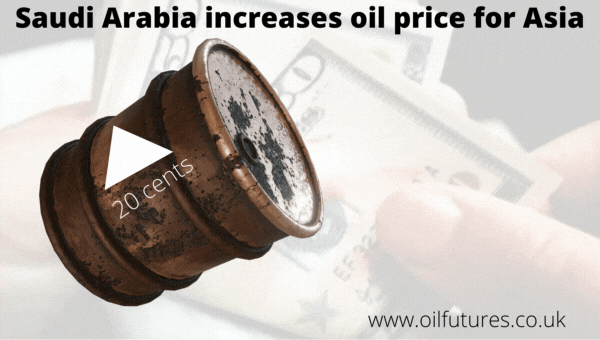Saudi Aramco, the state owned oil giant, reversed
its decision to lower the price of crude oil for Asia and increased the price
instead for July by 20cents.
Last month, Saudi Arabia reduced the price of crude
oil for the same region where 60% of its core customers are in as a gesture of
goodwill: the region in question is still battling with a catastrophic surge in
Covid-19 infections, with India, the third largest consumer of the commodity in
the world, being the worst hit; the pandemic situation in Japan, Malaysia and a
few in the region is far from over.
In a surprise move, Aramco has not raised the price
of crude oil for the US, the world’s largest producer of the fuel.
Saudi Arabia’s decision is attributed the surging
demand of crude oil, especially in the US and Europe; the OPEC+ believes that
the demand will outstrip the supply and hence producers want to cash in on it.
There may be another factor, though. Iran and the
West are going into the sixth phase of discussion on the 2015 nuclear deal,
known as the JCPOA. Since both sides of the talks are determined to make it the
final round, the possibility of a deal being struck is reasonably high, as both
sides are fully aware of the stakes in the event of a failure.
On the other hand, by reading between the lines of
the respective communique, it is clear the gap between disagreements is
narrowing. Iranian delegation is back in Tehran for consultations and the rest
in their respective capitals for the same.
As far as the delegations of the West are concerned,
they have to allay fears of Iran’s foes in the region, which want strict
monitoring Iranian nuclear activities – with a deal or not; that means, these
delegates have the enviable task of walking the tight rope before them in
difficult scenarios.
Although some oil producers are anxious about Iran’s
return to the oil markets and its impact on the oil price, Iran will not take
self-harming measures to hurt its own trade; OPEC+ still believes Iranian oil
will return to the markets in an orderly and transparent matter, measurement of
both indicators will not be easy.
Anticipating a hypothetical threat to the oil price
in general and Saudi revenue in particular, Saudi Arabia may have decided to
make hay while the sun shines – even if it means a serious blow to its solid
customer base in Asia.







